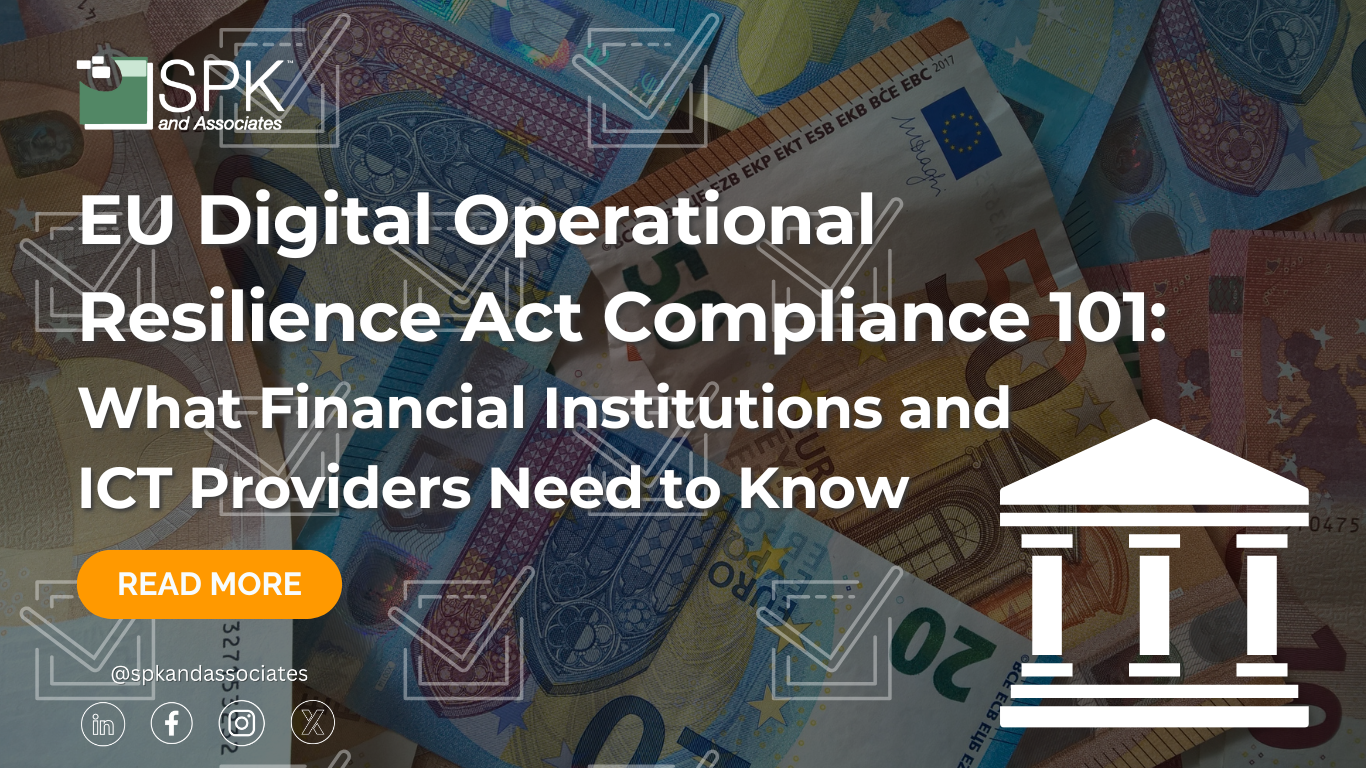Digital disruptions such as cyberattacks or system failures are one of the largest threats to the financial sector. Recognizing the increasing reliance on digital infrastructure, the European Union introduced the Digital Operational Resilience Act (DORA). This act ensures financial institutions can withstand, respond to, and recover from ICT-related risks. Taking effect in January of this year, DORA (not to be confused with DevOps Research and Assessment) introduced a regulatory framework aimed at boosting the digital resilience of financial entities across the EU. Whether you’re a financial institution or a third-party ICT provider, understanding the importance of DORA compliance is critical.
What Is DORA?
DORA is a regulation designed to create a consistent standard for managing Information and Communications Technology (ICT) risks across the EU’s financial ecosystem. It applies to a wide array of financial and ICT-related entities, including:
- Banks
- Insurance companies
- Investment firms
- Crypto-asset service providers
- Crowdfunding platforms
- Payment institutions
- Electronic money institutions
Additionally, it applies to critical third-party ICT service providers offering services such as cloud platforms, data analytics, and audit solutions.
Key Components of DORA Compliance
DORA is built on a few key pillars: ICT risk management and incident reporting, digital operational resilience testing, and third-party risk management. Each component plays a vital role in improving overall digital resilience. Organizations are required to demonstrate compliance across all these areas.
ICT Risk Management Framework
At the heart of DORA is the mandate for a robust ICT risk management framework. Financial entities must implement robust internal governance and controls tailored specifically to ICT risk. They are required to use reliable, up-to-date systems, protocols, and tools to ensure operational integrity. Additionally, they must identify all ICT-supported business functions, assets, and dependencies. Rapid detection and response to anomalies and incidents are essential alongside maintaining comprehensive business continuity and disaster recovery plans. These plans must be tested and updated regularly to remain effective in the face of evolving threats. This framework also extends to third-party services, meaning outsourced systems must meet the same high standards.
Third-Party Risk
DORA emphasizes the importance of managing ICT third-party risks, especially for services critical to business operations. Financial entities are required to conduct preliminary risk assessments before contracting. Additionally, they must maintain a register of all ICT service contracts ensuring the contracts include:
- Service descriptions and performance metrics
- Data protection and storage location details
- Rights for audits and termination
- Subcontractor management policies
This means service providers must be fully transparent and accountable for the digital services they deliver.
Incident Management
DORA mandates comprehensive processes for managing and reporting ICT-related incidents. Entities must detect, log, and classify incidents based on severity and impact. The classification criteria include the number of clients affected, the duration, the amount of data lost, and the economic impact. In addition to this, individuals must report major incidents to relevant authorities using standardized templates. Organizations may also voluntarily report significant cyber threats. The standardization of incident reporting is expected through future EU initiatives. This improves both regulatory oversight and collective threat awareness.
Resilience Testing
To ensure systems are truly resilient, DORA requires regular operational resilience testing. This includes annual to triennial Threat-Led Penetration Testing (TLPT) for critical systems. Additionally, companies can simulate high-impact scenarios to evaluate readiness. DORA also mandates continuous refinement of response and recovery strategies. Tests like these ensure organizations are not only compliant but prepared for real-world threats.
How SPK Can Aid in DORA Compliance
At SPK and Associates, we’ve spent over 20 years helping financial organizations meet stringent regulatory standards. We offer compliance consulting for everyone from startups to global enterprises and can help set up the proper architecture and design processes for these organizations.
One example of our financial work is when a client faced complex cybersecurity requirements from FINRA and the SEC. We implemented an automated monitoring system using GrayLog2, which enabled the detection and analysis of unauthorized access attempts across a vast, multi-region network. That system continuously supports their compliance needs efficiently and cost-effectively.
We can help you design or refine your ICT risk management framework. Our experience allows us to build resilient systems aligned with regulatory standards, in this case, DORA. Our team also offers 24/7 services where we can monitor and manage third-party services for your organization. Lastly, we can prepare your business for the required resilience testing and regulatory audits.
Ensure DORA Compliance
DORA isn’t just another regulation, it’s changing how digital risks are managed in the financial sector. Whether you need to overhaul your current systems or ensure your third-party contracts are compliant, SPK is ready to help you navigate DORA with clarity and confidence. Contact our experts today to discover if SPK’s offerings suit your business needs.









